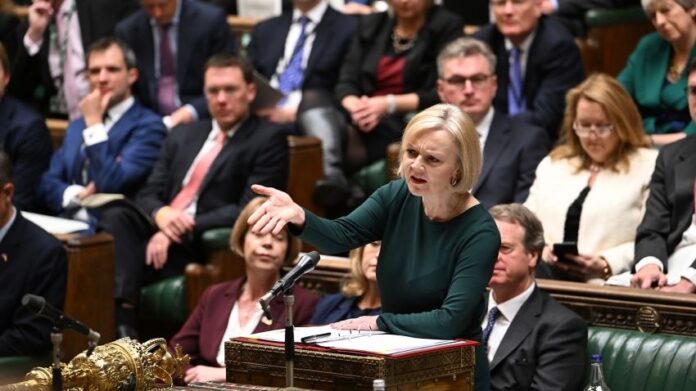Prime Minister Liz Truss of the United Kingdom made a significant reorganization and abandoned a crucial tax-cutting vow on Friday, but these actions were unable to calm the markets as the pound and government bonds continued to decline.
Truss reversed course on her contentious “mini-budget,” which has caused markets to tremble since it was unveiled on September 23, at a hastily scheduled news conference. This was the second retreat on her decision to postpone a planned hike in U.K. company tax.
Kwasi Kwarteng became the second-shortest-serving chancellor in history after Truss fired him and replaced him with Jeremy Hunt just hours before Friday’s announcement.
Before Truss’ news conference, gilts, or UK government bonds, saw a strong rally. During morning trade, the long-term 30-year yield temporarily reached 4.261%. Prices and yields follow opposite trends.
However, after the conference, they handed back their gains, with the 30-year yield reverting to roughly 4.819% by around 5 p.m. U.K. time.
Following Truss’ statement, sterling saw a tumultuous session and dropped by about 1.1% versus the dollar, trading at about $1.1205 at the time.
It appears that Truss’s speech failed to persuade experts or the markets that Britain’s financial storm is over.
According to Mike Owens, a U.K. sales trader at Saxo, Truss’s U-turn on tax policies may make investors wary of upcoming political instability rather than clearing the air.
“This historic U-turn could bring some joy to the market, though act as a warning and increase uncertainty over further short-term change of hearts, which will continue to see the economy travel down Liz Truss’ political helter skelter,” Owens said in an analysis note.
The announcements Friday may have come too late, suggested Ben Laidler from investment company eToro. “There is a feeling that the horse may have bolted,” Laidler said in a note released just before Truss’s statement.
“The costs of the mini-budget horror show have already been high and it’s not clear that the expected corporation tax U-turn will sustainably calm markets,” he said.
This article was originally published here.








